The integration of DevOps practices has emerged as a game-changer, allowing retail businesses to streamline their operations, enhance customer satisfaction, and ultimately drive growth. In this comprehensive guide, we’ll delve into the world of DevOps and explore how it can transform the retail sector.
Understanding DevOps in a Retail Context
Before we dive into the specifics of how DevOps can benefit the retail industry, let’s clarify what DevOps actually means. DevOps is a combination of two words: “development” and “operations.” It is a set of practices, principles, and tools that aim to bridge the gap between software development teams and IT operations teams. The primary goal of DevOps is to enable faster and more reliable delivery of software and services.
In the context of the retail industry, DevOps extends beyond traditional software development. It encompasses the entire retail ecosystem, including supply chain management, inventory control, e-commerce platforms, and in-store operations.
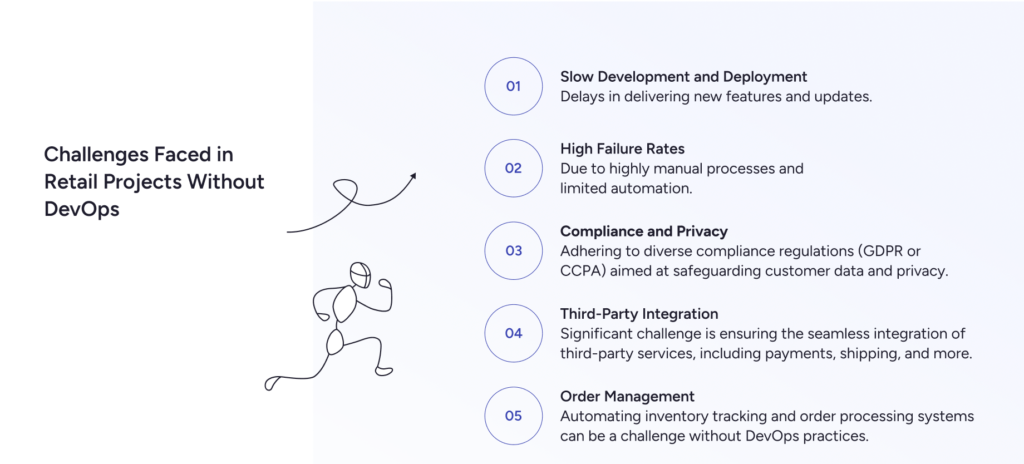
Tailoring DevOps Practices for eCommerce Success
In the eCommerce industry, DevOps practices need to be tailored to address some specific challenges and requirements. By adopting these DevOps best practices, retail companies can enhance their agility, customer satisfaction, and overall business performance in a highly competitive industry. It allows them to respond to market demands more effectively and deliver a superior shopping experience to their customers.
Here are some DevOps practices specific to the eCommerce sector:
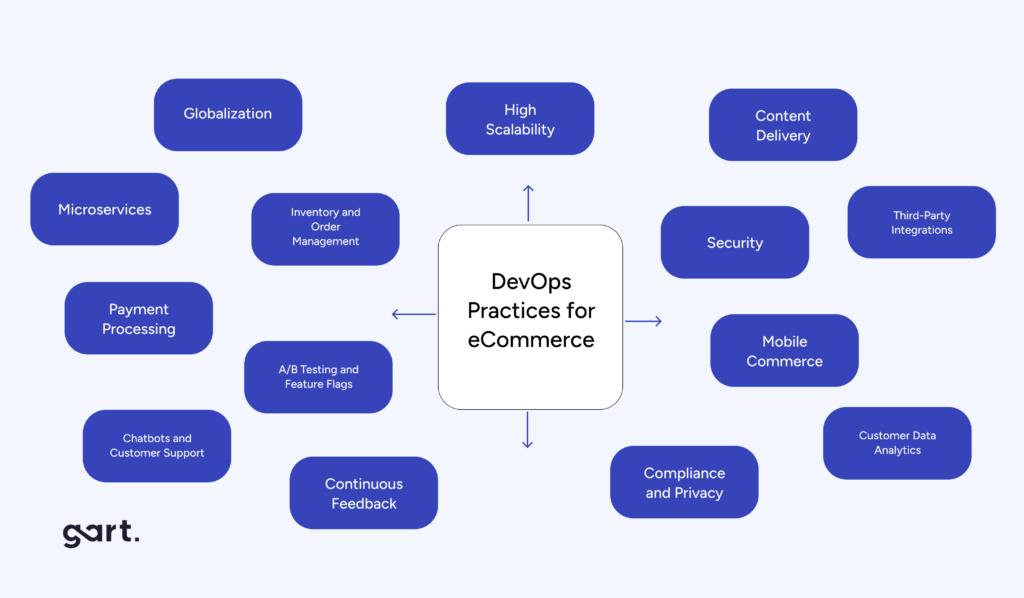
High Availability and Scalability
eCommerce websites often experience sudden spikes in traffic during sales events or holidays. DevOps teams should focus on building scalable architectures that can handle these traffic fluctuations. This might involve auto-scaling, load balancing, and efficient caching strategies.
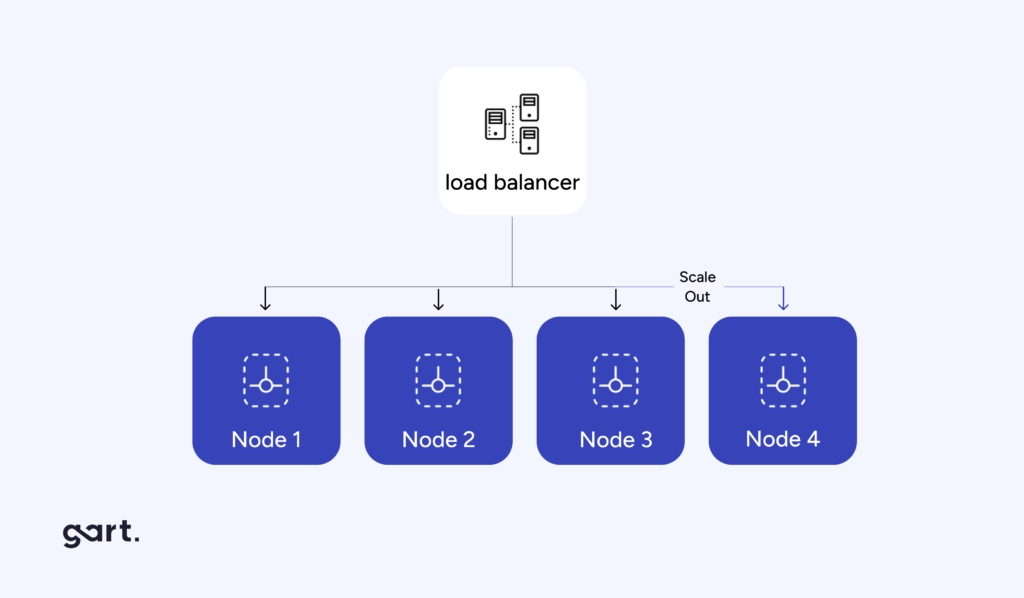
Customer Data Analytics
DevOps can assist in setting up data pipelines and analytics tools to gain insights into customer behavior, helping retailers make data-driven decisions to improve their online stores.
Microservices
Many eCommerce platforms are built using a microservices architecture. DevOps practices should support the deployment, monitoring, and management of these microservices independently to ensure agility and fault isolation.
Retail solutions aren’t constructed as large, monolithic applications that rely on a complex network of servers. Microservice architecture is like building a digital system using small, independent building blocks (microservices) that work together. Each building block does a specific job, and they all communicate to create a complete, flexible, and efficient system.
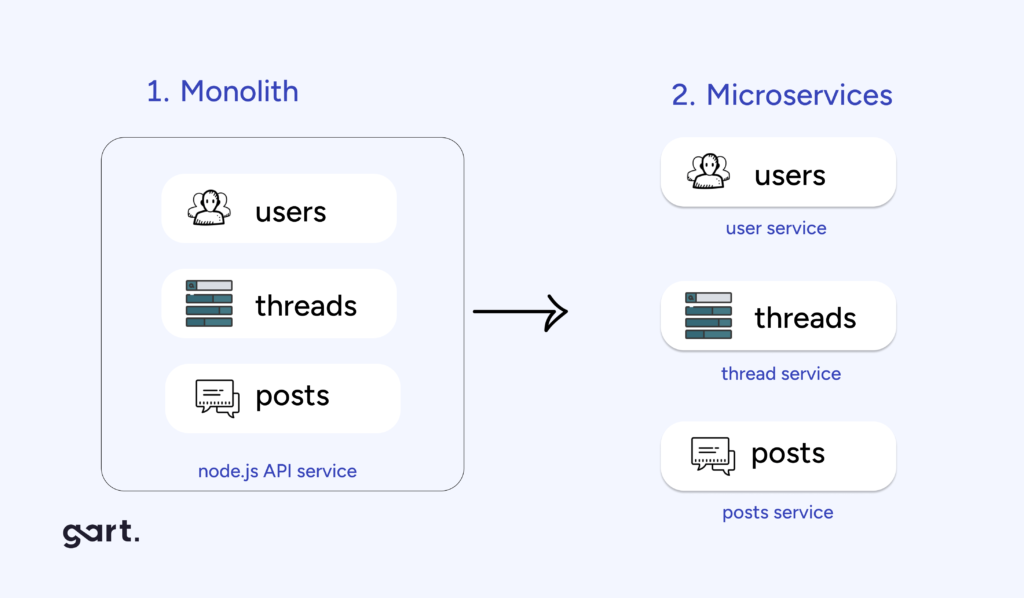
It’s similar to assembling a collection of LEGO pieces to construct a complex structure, where each piece serves a unique purpose and can be changed or improved without affecting the entire creation. This approach makes it easier to develop, scale, and maintain software.
Inventory and Order Management
Automate inventory tracking and order processing systems to maintain accurate stock levels and handle order fulfillment efficiently. DevOps can help in creating automated workflows for inventory updates and order processing.
DevOps practices can streamline order processing by automating various steps, such as order validation, payment processing, and order fulfillment. This reduces the risk of errors and ensures that orders are processed quickly and accurately.
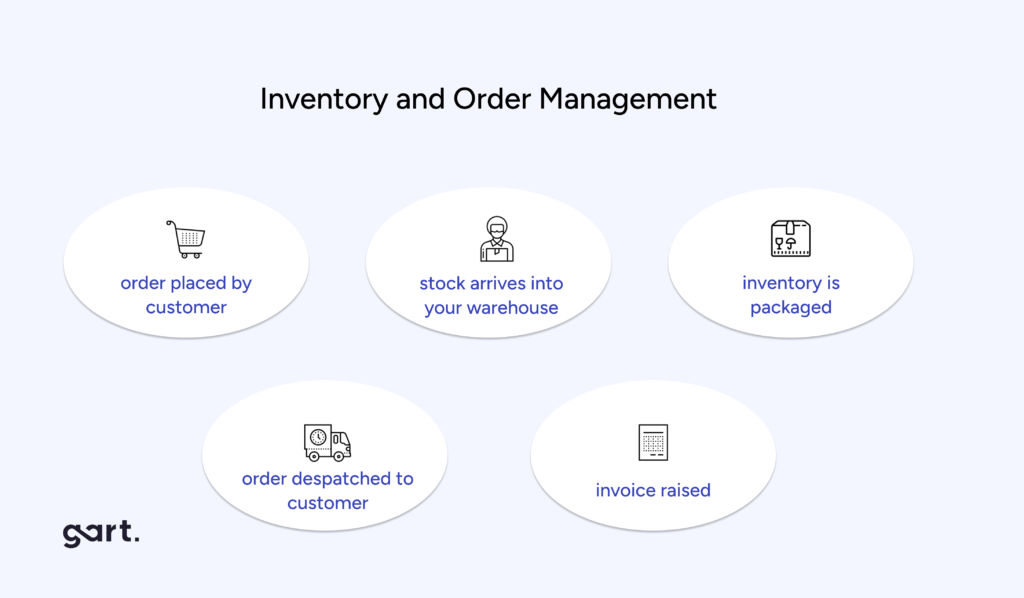
DevOps can facilitate seamless integration between inventory and order management systems and e-commerce platforms. This integration ensures that product availability and order status are accurately reflected on the website, reducing the likelihood of overcommitting stock or displaying inaccurate delivery times.
DevOps can help in creating audit trails that track changes to inventory and order data. These logs are essential for identifying discrepancies, tracking order status, and investigating any issues that may arise during the order fulfillment process.
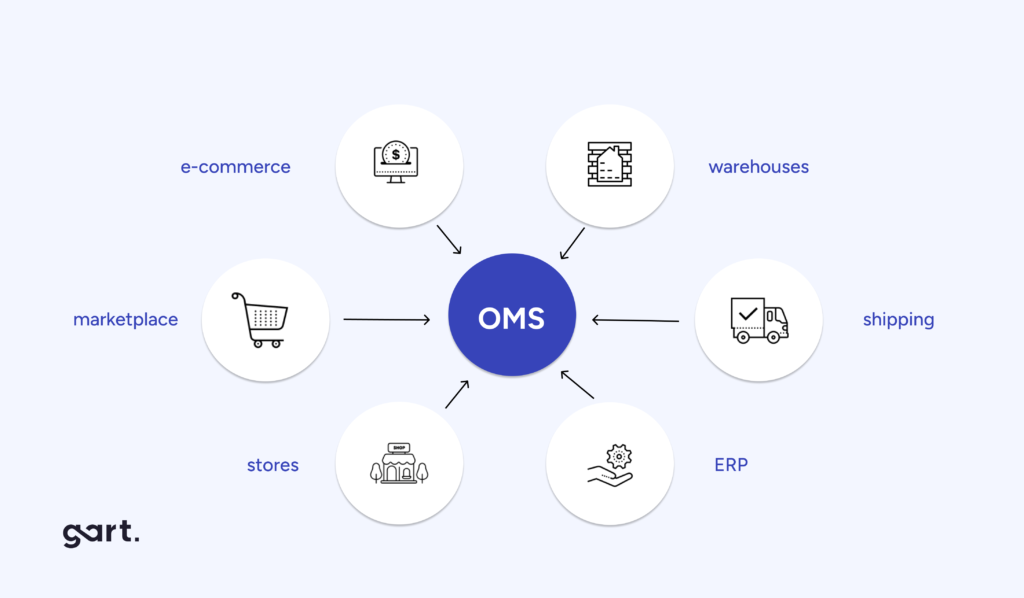
During peak shopping seasons or promotions, order volumes can increase significantly. DevOps allows for the automatic scaling of resources, ensuring that the order processing system can handle higher demand without performance degradation.
Payment Processing
Safeguarding the security and dependability of payment processing systems is of paramount importance. In the realm of DevOps, it is essential to incorporate a comprehensive approach that encompasses stringent testing, rigorous security audits, and thorough compliance checks for payment gateways. These measures are critical for upholding the integrity of customer financial data and ensuring the smooth and secure operation of payment transactions
Content Delivery
Optimize content delivery with Content Delivery Networks (CDNs) to reduce page load times and enhance the shopping experience. DevOps can manage CDN configurations and cache purging strategies.
Case Study: Optimizing Costs and Operations for Cloud-Based SaaS E-Commerce Platform
Third-Party Integrations
Many eCommerce platforms rely on third-party services for payments, shipping, and more. DevOps should ensure the smooth integration of these services through robust API management and monitoring.
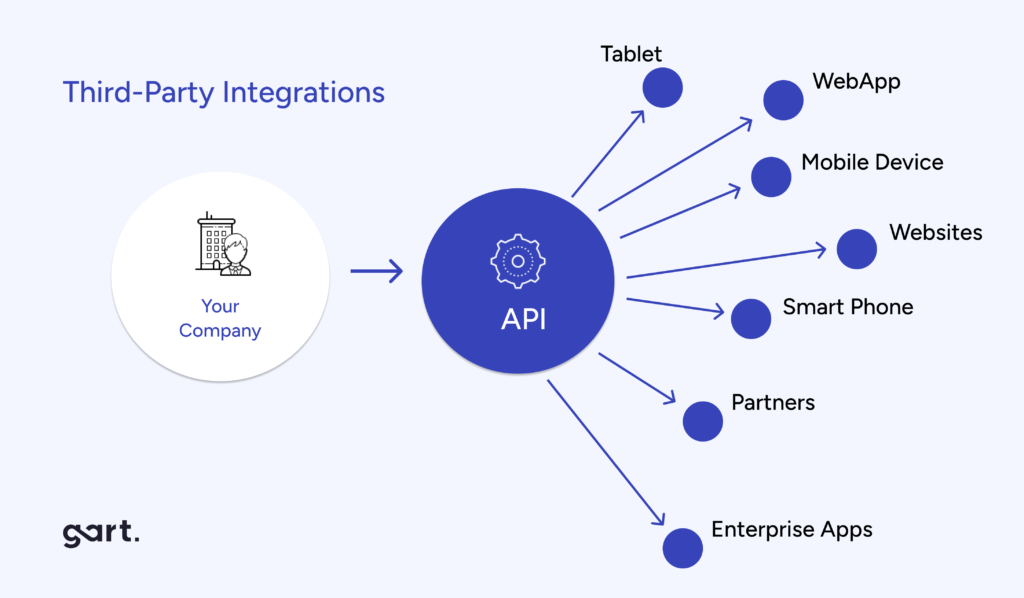
Case Study: Implementation of Nomad Cluster for Massively Parallel Computing
Search and Recommendations
DevOps can help optimize search functionality and recommendation engines to improve product discovery and increase sales. Monitoring and analyzing user behavior can guide these optimizations.
Mobile Commerce
As mobile commerce grows, DevOps should focus on mobile app development, testing, and performance optimization to ensure a seamless shopping experience on mobile devices.
Compliance and Privacy
eCommerce companies must adhere to various compliance regulations, such as GDPR or CCPA, to protect customer data and privacy. DevOps should automate compliance checks and reporting to ensure legal compliance.
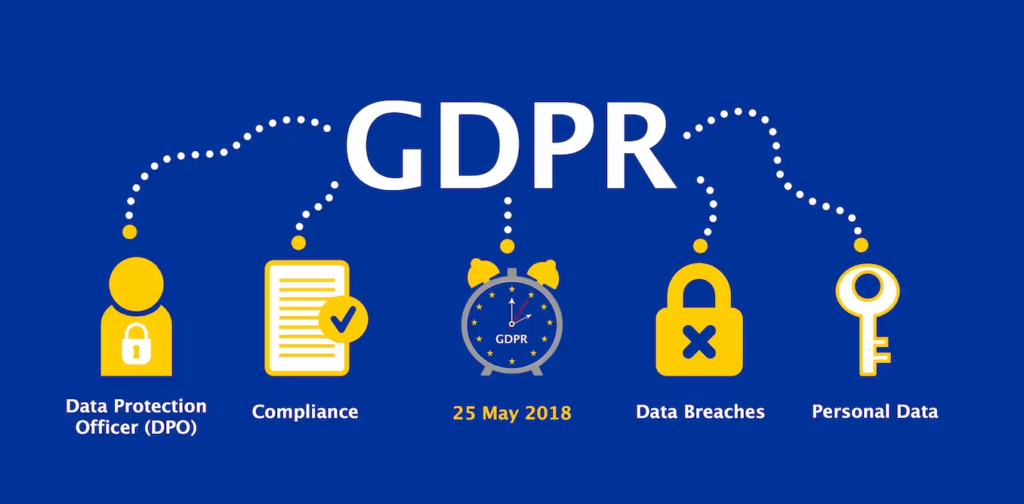
A/B Testing and Feature Flags
DevOps can enable the seamless rollout of new features and changes through techniques like A/B testing and feature flags. This allows eCommerce companies to test different user experiences and measure their impact on sales.
Security
Security is paramount in eCommerce due to the sensitive customer data involved. Continuous security scanning, vulnerability assessments, and adherence to security best practices should be integral to DevOps processes.
Chatbots and Customer Support
Implementing chatbots and AI-driven customer support solutions can benefit eCommerce companies. DevOps can manage the deployment and maintenance of these tools for enhanced customer service.
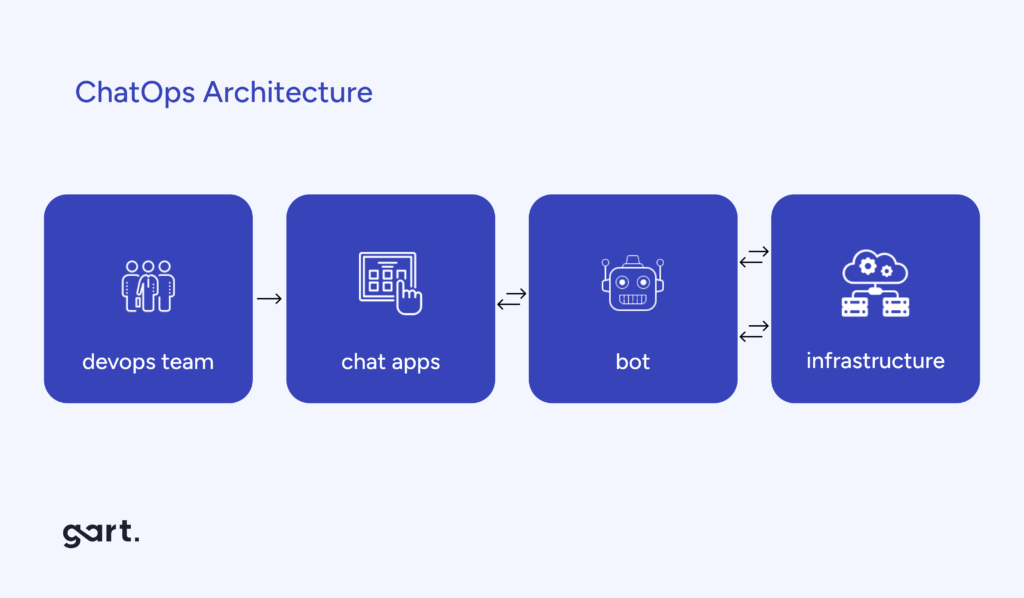
Case Study: Streamlining Presale Processes with ChatOps Automation
Continuous Feedback
Establish mechanisms for continuous feedback from customers, such as reviews and ratings, to identify areas for improvement in both the website and the shopping experience.
Globalization
For eCommerce businesses operating internationally, DevOps practices should consider localization, currency conversion, and regional-specific user experiences.
Case Study: DevOps for Fashion Circularity Web App
In the eCommerce industry, DevOps practices play a crucial role in ensuring the reliability, performance, and security of online stores. Adapting DevOps principles to these specific requirements can help eCommerce companies stay competitive and provide a superior shopping experience to their customers.
The Key Benefits of DevOps for Retailers
Quality is paramount in retail, especially when it comes to e-commerce platforms and customer-facing applications. DevOps practices, such as continuous integration and automated testing, help identify and eliminate bugs early in the development process, ensuring that software is robust and reliable.

Accelerated Time to Market
In the fast-changing retail landscape, being able to bring new products and features to market quickly is a significant advantage. DevOps enables retailers to release updates and enhancements in a matter of hours or days rather than weeks or months. This agility allows retailers to respond swiftly to market trends and customer feedback.
Enhanced Customer Experience
DevOps promotes a customer-centric approach by enabling retailers to gather and analyze customer data more effectively. With this data-driven insight, retailers can personalize marketing campaigns, recommend products, and optimize the overall shopping experience.
Cost Reduction
Efficiency gains through DevOps practices lead to cost savings. Automation of repetitive tasks, such as provisioning servers or deploying software updates, reduces the need for manual intervention. Additionally, improved resource allocation minimizes wastage and lowers operational costs.
Seamless Supply Chain Management
For retail businesses, managing the supply chain is critical. DevOps principles can be applied to supply chain processes, ensuring better visibility, coordination, and responsiveness. This results in reduced inventory carrying costs and improved on-shelf availability.
Pros and Cons of DevOps for Businesses
| Pros of DevOps for Businesses | Cons of DevOps for Businesses |
|---|---|
| 1. Accelerated Software Delivery: DevOps enables faster development, testing, and deployment, reducing time-to-market. | 1. Initial Implementation Challenges: Adopting DevOps practices may require significant changes in workflows, tools, and company culture, leading to initial challenges. |
| 2. Improved Collaboration: It promotes better collaboration between development and operations teams, fostering a culture of shared responsibility. | 2. Complexity: Managing DevOps tools and processes can become complex as the scale of operations grows, necessitating effective management. |
| 3. Enhanced Quality: Continuous integration and continuous testing help identify and address issues early in the development cycle, leading to higher software quality. | 3. Resistance to Change: Team members and stakeholders may resist transitioning to DevOps, requiring effective change management. |
| 4. Increased Efficiency: Automation of repetitive tasks reduces manual errors and frees up resources for more strategic tasks. | 4. Security Concerns: Fast-paced development may raise security concerns if not properly addressed. Security practices must be integrated into DevOps workflows. |
| 5. Scalability: DevOps allows for seamless scaling of infrastructure and applications to handle increased workloads and spikes in traffic. | 5. Cost of Implementation: Implementing and maintaining DevOps practices and tools can have associated costs. |
| 6. Faster Issue Resolution: Continuous monitoring and feedback enable quicker identification and resolution of issues, minimizing downtime. | 6. Learning Curve: Team members may need time to acquire the necessary skills and adapt to DevOps tools and practices. |
| 7. Competitive Advantage: Businesses that embrace DevOps gain a competitive edge by staying agile and responsive to market demands. | 7. Potential for Over-Automation: Over-automation can lead to issues if not carefully managed, potentially reducing flexibility. |
| 8. Better Customer Experience: With improved software quality and reliability, customer satisfaction often increases. | 8. Cultural Shift: Implementing DevOps may require a cultural shift within the organization, which can be challenging. |
| 9. Cost Savings: Automation and efficient resource allocation can result in cost savings over time. | 9. Continuous Improvement: DevOps requires ongoing commitment to continuous improvement, which can be demanding. |
To avoid the cons of DevOps for businesses, turn to trusted DevOps partners like Gart.
General DevOps Principles for eCommerce Companies
These principles help organizations deliver software more efficiently, reliably, and quickly.
Continuous Integration (CI)
Implement CI pipelines to automatically build and test code changes as they are committed. This ensures that any issues are caught early in the development process, reducing the risk of bugs in production systems.
Continuous Delivery (CD)
Extend CI to CD, enabling the automatic deployment of code to production or staging environments. For retail, this means faster updates to e-commerce platforms, apps, and inventory systems.
Proceed to Read: Accelerate Your Development Process with CI/CD Services
Version Control
Use version control systems (e.g., Git) to track changes in code and configuration. This helps in collaboration, rollback, and auditing, ensuring consistency in software and infrastructure.
Infrastructure as Code (IaC)
Define infrastructure using code, allowing for consistent and automated provisioning of servers and resources. IaC helps in scaling retail systems up or down as demand fluctuates.
Proceed to Read: Cloud Infrastructure Management Services
Monitoring and Logging
Implement robust monitoring and logging solutions to gain insights into system performance and issues. For retailers, this can include monitoring website traffic, order processing, and inventory levels.
Disaster Recovery
Develop and regularly test disaster recovery plans to minimize downtime in case of system failures or unexpected events.
Proceed to Read: Backup and Disaster Recovery Services
Compliance
Ensure compliance with industry-specific regulations such as GDPR (General Data Protection Regulation) and PCI DSS (Payment Card Industry Data Security Standard) for handling customer data and payments securely.
Documentation
Maintain comprehensive documentation for your DevOps processes, configurations, and best practices. This facilitates knowledge sharing and onboarding of new team members.
Culture of Learning
Encourage a culture of continuous learning and improvement. DevOps is not just about tools and processes but also about fostering a mindset of continuous improvement.
Prominent Retail Establishments that Employ DevOps Solutions
Many well-known retailers have adopted DevOps practices and services to enhance their software development and operations. Here are a few examples:
- Amazon: As one of the largest e-commerce platforms globally, Amazon relies heavily on DevOps to maintain its vast infrastructure and ensure seamless customer experiences.
- Walmart: Walmart, a retail giant, uses DevOps to optimize its supply chain management, enhance e-commerce capabilities, and improve customer service.
- Etsy: The popular online marketplace for handmade and vintage goods, Etsy, utilizes DevOps to continuously deploy code updates, enhance user experience, and maintain high availability.
- Target: Target employs DevOps practices to streamline inventory management, optimize its online store, and provide personalized shopping experiences to customers.
- Nordstrom: Nordstrom, a leading fashion retailer, leverages DevOps to improve website performance, implement new features, and maintain a competitive edge in the fashion industry.
- Zalando: Zalando, a European fashion e-commerce platform, embraces DevOps to stay agile and responsive to rapidly changing fashion trends while ensuring a smooth shopping experience.
- Kohl’s: Kohl’s, a prominent department store chain, uses DevOps to enhance its e-commerce platform, improve inventory management, and optimize the customer journey.
- Lowe’s: Lowe’s, a home improvement retailer, employs DevOps to improve its online shopping platform, offer personalized recommendations, and streamline supply chain operations.
- Best Buy: Best Buy utilizes DevOps to enhance its online and in-store experiences, including inventory management, customer support, and e-commerce capabilities.
- Macy’s: Macy’s, a well-known department store brand, incorporates DevOps practices to ensure efficient inventory management, optimize website performance, and enhance customer engagement.
These retailers recognize the value of DevOps in maintaining competitive advantages, responding quickly to market changes, and delivering exceptional customer experiences in the digital age. DevOps has become a crucial component of their success in an increasingly technology-driven retail landscape.
Conclusion
DevOps is a game-changer for the retail industry. By embracing DevOps principles and practices, retailers can achieve faster time to market, improve software quality, enhance the customer experience, reduce costs, and optimize their supply chain management. It’s not just about adopting new tools; it’s about creating a culture of collaboration, automation, and continuous improvement. As the retail landscape continues to evolve, DevOps will remain a driving force behind innovation and success in the industry. Embrace DevOps today, and watch your retail business thrive in the digital age.
See how we can help to overcome your challenges









